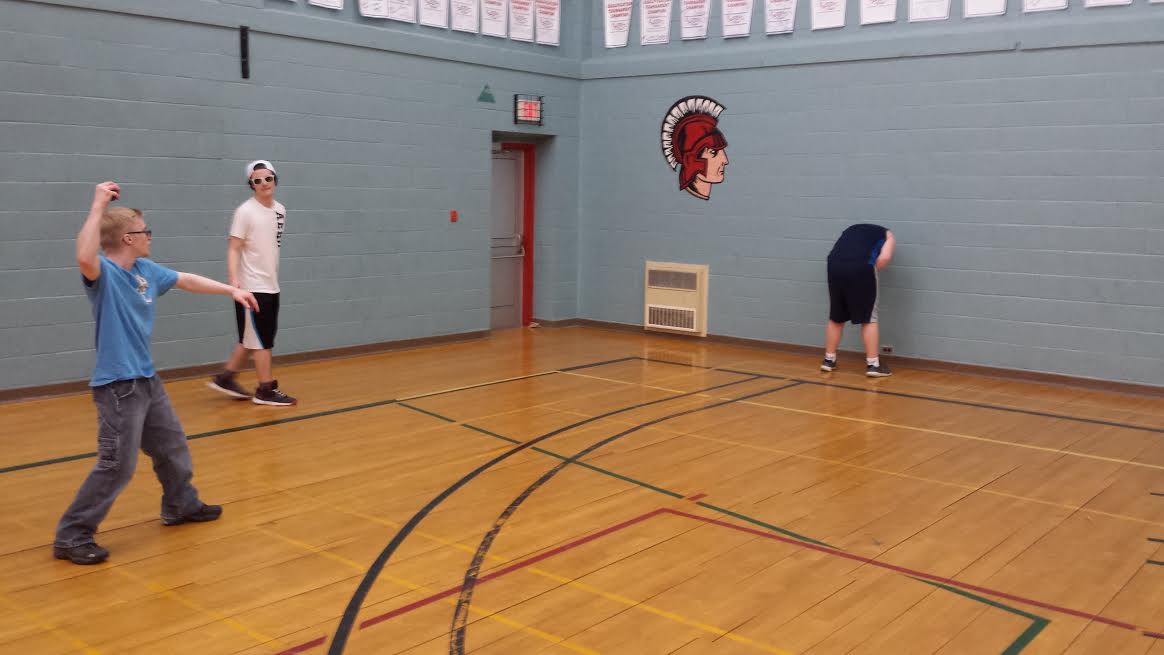I would like to say that nothing can prepare you for how long and how detailed the Wikipedia entry for the schoolyard ball game "Butts Up" is, but that would be untrue. There are actually kind of a lot of things that could prepare you for that, the most obvious of which would be even the most cursory familiarity or prior experience with Wikipedia, which is as a matter of course deranged in precisely the sort of way that a sprawling and richly detailed description of a schoolyard ball game that runs into the thousands of words is deranged. So it is maybe more accurate to say that, even bearing in mind that Wikipedia is one of the more deeply if benignly perverse spaces on the internet, I was startled by the length and detail of the entry on Butts Up. I did not feel prepared for it. But there's been a lot of that for me on this topic, this week.
Butts Up was what this game was called at the elementary school that I attended. While it is unlikely that it was called that at your elementary school, it is likely that some version of this was played there. There are many different versions of it, and seemingly just as many different names for it. But the game itself, which is built around kids throwing a tennis ball or raquetball off a wall, either catching it or not catching it, and then racing around in various ways to avoid various consequences depending upon whether they caught the ball or not, is played wherever there are schoolyards, walls, bouncy balls, and kids eager to play a frantic and loosely organized game that has just enough violence built into it to fall short of the getting-sent-to-the-principal threshold.
As I remember it, the version that we played at Ira W. Travell Elementary School in Ridgewood, New Jersey didn't have any kind of object. You could not win it; you could not really lose, either, at least in the sense of being "out" or eliminated. The penalty for screwing up—dropping a ball off the wall, and then failing to touch the wall before a classmate picked up your miss and fired it off the wall in turn—both gave the game its name and its purpose. You had to stand there, and a classmate threw the ball at your butt. You did this during lunch, or recess, and shouted a lot in a ridiculous high-pitched voice more or less the entire time, and then at some further point down the line you go off to middle school and start doing other stuff.
Most of my Defector teammates remembered some version of this game being played at their elementary schools; they remembered the game as having been called, variously, "asses up" or "slaughterhouse" or "suey." That Wikipedia page lists a bunch of others—"butt ball" and "fireball" and "redass" and "fumble" and, delightfully, "watermelon" and "celery." The latter two are identified in the Wikipedia entry as being played in Westchester County, New York and "some areas of Toronto," respectively. It's really a pretty remarkable text. A prefatory sentence notes that the article "has multiple issues" and all I can say on that front is that I treasured every single one of them.
On Wednesday night, at Defector's third birthday party, I learned another name for it, and have been processing it ever since. There are a couple of reasons for this. The first is that the Defector reader who told me about it, John, is also from Ridgewood. He's a few years younger than me, and went to elementary school at Willard, which serves another part of what is honestly not a very large town; our two schools are less than two miles apart. We talked about the sort of things that you might talk about at a website's birthday party with someone who went to the same high school, and while I can't speak for him I will say that I enjoyed it immensely. But there was something that John wanted to tell me about, and which he correctly suspected would interest me a great deal. He asked me if we played wall ball at my elementary school, and I told him that we did, and what we called it. And then he asked me if I knew what they called it at Willard, and I said that I did not. And then he told me that, at Willard, this game is called "Chunkus."
I don't think I asked him to repeat himself. I knew what I'd heard. As I remember it, I said "Chunkus" and then he said "Chunkus." It was the sort of dialogue that Aaron Sorkin might write after being kicked in the head by a donkey. We established that we were talking about the same game—"You mean like 'celery'?" I would have said, suddenly walking purposefully with John down a long corridor, had Sorkin scripted this part—and while we went on to talk about other things, I had that word, that name, that CHUNKUS scrolling through my head for the rest of the night. I told various people about it and they nodded politely. I am now doing something like the same thing here, I realize, but I wanted to get this on the record, and if possible onto that Wikipedia page, which suddenly seems less comprehensive than it did before given that it does not have the word CHUNKUS on it.
But comprehensiveness is not, and cannot, be the goal; the whole of this game cannot be known, or told, although I'd be delighted to hear what this game was called on your schoolyards, in your youths. This is something like the power of it. All you can really hope to do is add to the sum of a necessarily incomplete and evolving understanding. So that is what I bring you here, today. I bring you CHUNKUS. Do with it what you will.






